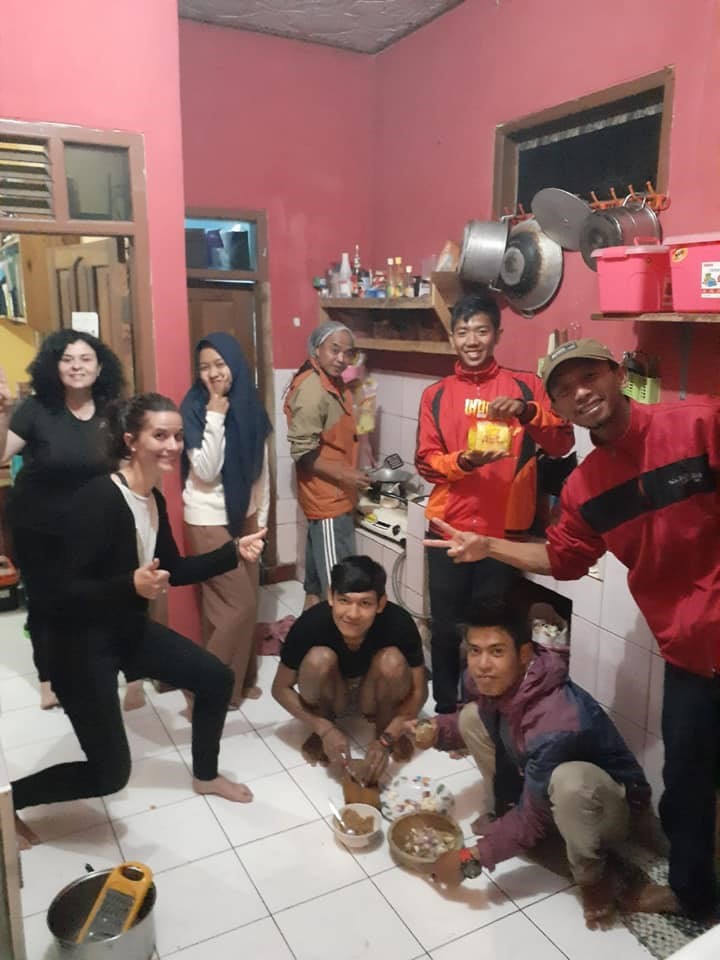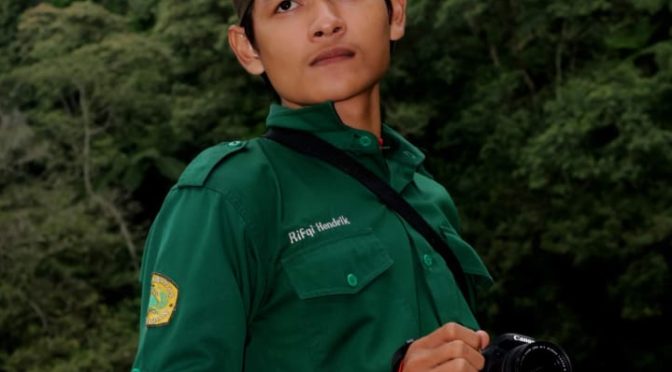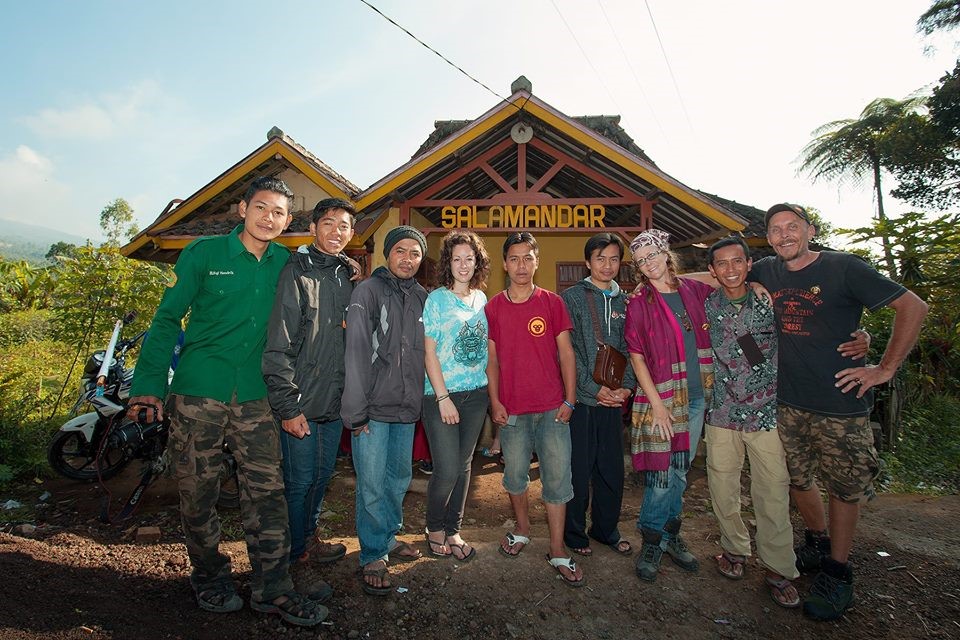Hello everyone! my name is Rifqi and in this week’s blog I am going to tell you about my experience at LFP. The first time, in 2015, I went to LFP as a volunteer and now a new adventure is ahead!
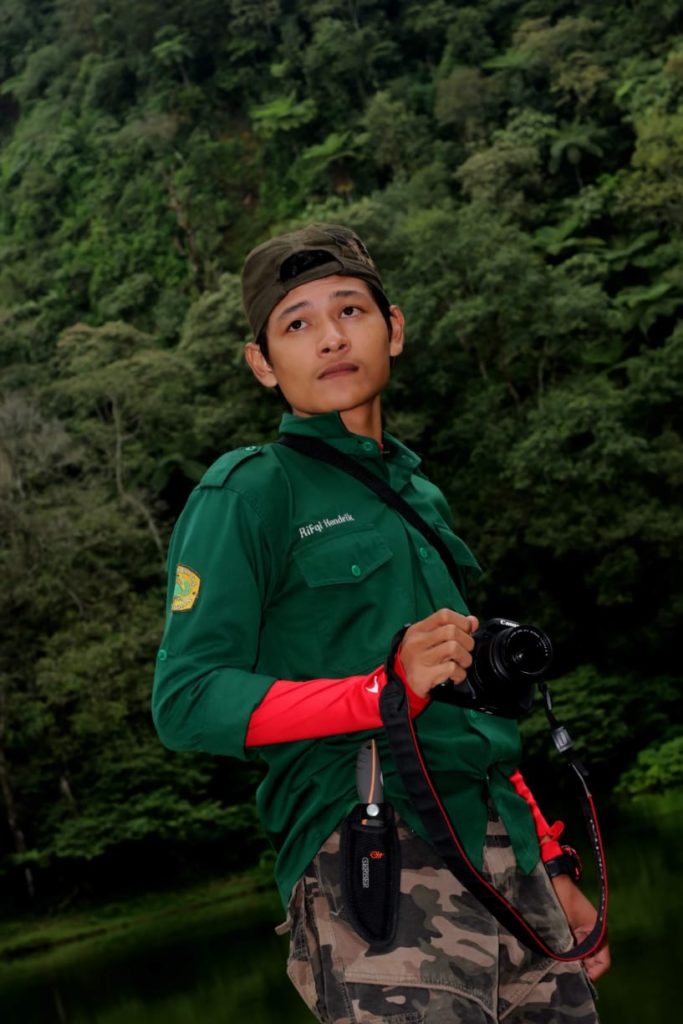
The LFP team in 2015
That time the LFP field coordinators are Sharon Williams and Michael Williams. They taught me a lot about conservation and wildlife photography. Besides the two of them, LFP has reliable trackers: Kang Dendi, Adin, Yiyi, and Aconk, they taught me how to do behavioral observations, data collection, and study of Javan slow loris vegetation. We always discussed all together about all LFP programs and activities.
My first research at LFP
I studied at a university in Bogor, I did research for graduation requirement. In October 2015, I joined LFP and conducted a month’s research of Javan slow loris behaviour. I made observations at night, this was very pleasant for me, trying to wake up all night to watch the slow loris activity. LFP is very open with young researchers who want to develop their knowledge, especially in the conservation of Javan slow loris. Besides research, there are other activities that I do, such as wildlife photography and education in the nature club program.
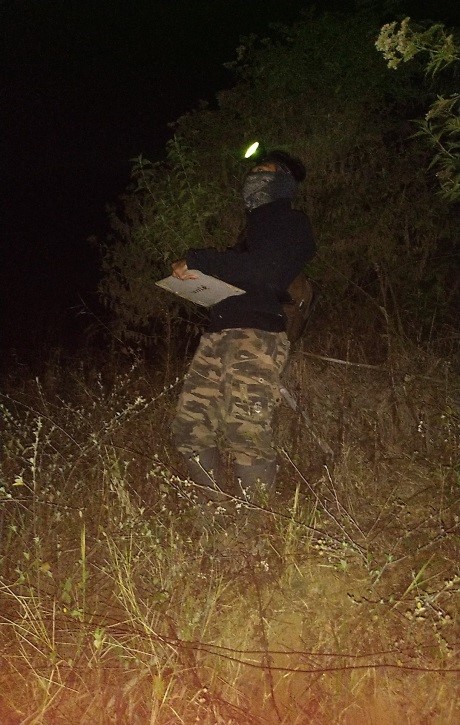
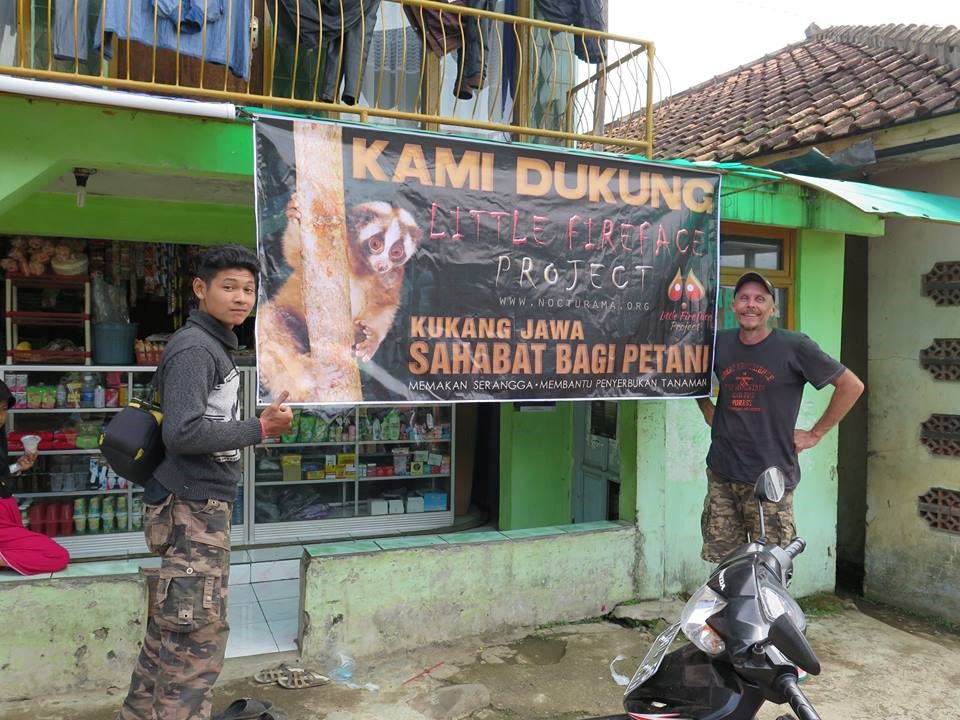
Now I am back as wildlife trade officer and officially part of the LFP team
After 3 years, in September 2019 I returned to join the LFP. I get the trust as Wildlife Trade Officer, this program focuses on animal trade. This work is very challenging for me, I’m not an expert in their field, given the opportunity to learn more about Wildlife Trade. Our current target is protected songbirds, the songbird is very popular in Indonesia, but this threatens bird populations in the wild, due to the rampant hunting of songbirds in the wild to be traded. This is a complex problem, which cannot be solved only from one side. One side is culture, on the other side this culture threatens the existence of songbird populations in Indonesia, many species of songbirds that are contested included to protected status and may not be traded. Through the Wildlife Trade program, we are trying to get relevant data on protected animals, especially songbirds that are still traded freely and in large numbers. With the existence of relevant data, hopefully in the future the government and the authorities can increase the security of protected species so that they are no longer freely traded, do not use protected animals for any purpose. Rifqi Hendrik
